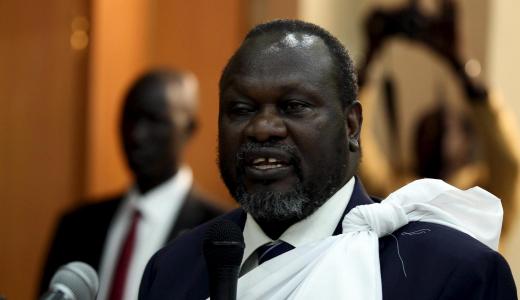South Sudan bans media interviews with rebel leader

November 15, 2016 (JUBA) – South Sudanese government under President Salva Kiir has resumed a drive banning media organisations and journalists from interviewing and disseminating any material associated with the former First Vice President and the leader of armed opposition in the country (SPLM-IO), Riek Machar.
A high ranking security officer told Sudan Tribune on Tuesday that “no media entity and journalist will be excused from the ban” until a review of the media policy is completed.
“There are orders and directives we have received from the above that no media is allowed to talk to Riek Machar and come and broadcast or print it out here inside South Sudan. If you defy these directives, then the violators will not escape the longest arms of the law. They will have to face the full force of the law,” a security officer told Sudan Tribune on Tuesday .
“So be very careful you members of the media, especially those of you in the electronic media who do not comply with the policies of the government because you think you can not be reached. It is a false perception. The government has the longest arms to reach you”.
The officer whose assignment does not allow him to speak to the media in an official capacity said Eye Radio station was shut down for “promoting rebellion”.
Citing the closure of Eye Radio, he claimed, some media do not comply with the directives and despite repeated warnings to observe basic ethics of journalisms during interactive public phone programs.
The management of the United States funded radio also admitted receiving information notifying them the cause of the closure of the radio is linked to the airing of a news clip from a press conference held by Riek Machar a month ago.
The operative says forced to take unilateral decision after the station failed to comply with the directives and warnings to cease interviewing rebel officials and stop doing talkback segments in their programs.
Machar, according to the clip said, “We did not see that there is an initiative from the region or the United Nations or the African Union to rescue the agreement. From our side the agreement has collapsed, or part of the government of national unity has collapsed since July events. We do not want violence.”
He was talking about his replacement and the muted regional response.
(ST)
